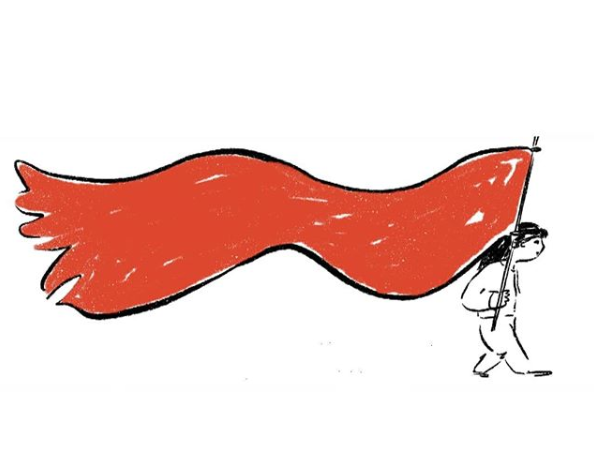Working Students on May 1st
May 1st, International Workers’ Unity, Solidarity and Struggle Day is celebrated this year away from the squares, as access to them is limited due to the Covid-19 pandemic. Working students, whose numbers have increased recently, have been participating in May 1st for years, expressing their demands regarding their own problems. This year, they continue their struggle for their rights, especially on social media, in solidarity with the university workers. To mark the day as the Civic Space Studies Association, we conducted an interview with students studying at the university and working in various fields and talked about how working affects the learning process.
Leyla, a 3rd year student at Istanbul University Faculty of Political Sciences, works as a part-time waiter in a cafe. We asked how this situation affected her before Covid-19. “I have two lives,” Leyla states. “In one, I think about the content of the lessons, like history, political theories and in the other I am an employee.” When asked whether this situation is difficult, Leyla replies as follows: “It is very hard. There is also compulsory attendance in some courses. I am trying to organize my work schedule accordingly, but other people in the place where I work are not like me, they have one life. Obviously, I need to choose the days when the cafe is busy, because I know that there are thousands of students who are ready to do my job.”
After the Covid-19 pandemic, Leyla could not continue her work in the cafe. “I knew that I would have financial difficulties when the decision on closing cafes was announced. We worked as if we were on paid leave for the first two weeks. I took the wage for those days, but then, we were given unpaid leave. Of course these are not official, I am telling it this way to describe the situation. I was unemployed and I have no earnings other than that.” Leyla says that after this period, she returned to her family.
Hayri from Gelişim University works in a job related to his field of study. He studies in the graphic design department and also works from home for a graphic design agency. “My situation is better than many working students, at least I’m improving myself.” states Hayri. When we ask if he can earn an income that can sustain his life financially, he laughs first and then adds: “I may not be able to earn such a living in my profession for a long time even after I graduate” he says. “I can’t even get the money for the tea and coffee I drink while doing the work. ” Hayri continues: “They see my job as an internship. It is actually an internship, but I often work long hours. I have to do an internship professionally. Because you are taught the job, you either work for free or if you are lucky, you are employed for very little wages.”
Salih works part-time as a call center officer in a company founded by one of the shareholders of the foundation university where he studied. (We do not give the university and company name for his safety.) Salih says that (the university) has developed such a program, claiming that they give students the chance to earn their own income. “As we study at this university, we are given priority for hiring. Our job is to search for debtor customers and try to collect from them. In fact, you think that you will have a more comfortable working life due to this relationship between the university and the company, but it is actually the opposite. Hundreds of students from the university apply for this job and fifty people are already working. What bothers me the most when doing this job is knowing how hard it is to defend my rights as a student and it is even more difficult as a worker. For example, there was a problem with meals, we were threatened with dismissal because we conveyed this problem. Some of our friends were dismissed.” He stresses the contradictions: “I am now studying at a university where the workers are treated like this. Actually, this creates a kind of trust problem.” Salih is one of the students who became unemployed after the Covid-19 pandemic and he could not return to his family. “This situation is very difficult for me. While I was thinking about how to pay rent and bills and how to participate in distant education, I was unable to deal with anything else.”
May 1st this year coincides with the Covid-19 outbreak, which makes working students’ precarious working conditions even more visible. We maintain our hope that the students will not have to deal with precarity, that equal conditions will be created and that students will be able to focus on their studies, getting out of this epidemic period even stronger than they were before. We wish that, May 1st International Workers’ Unity, Solidarity and Struggle Day, will become a day where students, workers, women and young people will create unity in which they can solve their problems in solidarity.
Illustration by Aslı Alpar.

